Dear colleagues, partners, and friends,
As we look back on the 29th year of the Center for Teaching, I find myself reflecting on an emerging national conversation around academic success. Scholars like Jody Greene argue that transformational change becomes possible when we focus on the intersection of faculty success and student success. This philosophy of academic success is core to the work of the Center for Teaching and our belief that by empowering and supporting all who teach and strengthening the cultures in which they work, we support student success.
One of my favorite descriptions of educational development comes from Sorcinelli, Austin, Eddy, and Beach (2005), who called it a “key lever for ensuring institutional quality and supporting institutional change” (p. xi). Throughout this digital annual report, you will see how our work advances the university’s strategic priorities, including sixteen strategic plan tactics. Academic success is a critical aspect of this work. For example, the Center for Teaching currently administers two strategically funded P3 projects, which we hope you will read about below. In just the SoTL and scholarly teaching programs, the center worked with 33 faculty members in 2024-2025 who had a total course enrollment of more than 8,000 students.
In just the SoTL and scholarly teaching programs, the center worked with 33 faculty members in 2024-2025 who had a total course enrollment of more than 8,000 students.
As we share some of the highlights of our work, we offer our gratitude to the Office of the Provost, especially Associate Provost for Undergraduate Education Tanya Uden-Holman, to whom we report. We especially want to thank the many campus partners, offices, programs, and colleagues with whom we collaborate every single day. When the Center for Teaching was founded in 1996, it was heralded as a symbol of the university’s strong commitment to teaching. Today, that commitment is reflected in our strong collaborations with departments, offices, programs, and individuals from all across campus who share our commitment to excellence in teaching and learning. On behalf of the entire Center for Teaching team, thank you for your partnerships and for all that you do to support academic success at Iowa.
Most of all we want to thank all who teach – from the graduate teaching assistant preparing for their very first day in the classroom to the full professor curious about new ways to engage students. Your dedication shapes the learning experiences of Iowa students and drives our academic success.
As we look to our 30th year in the Center for Teaching, we'll be continuing to expand the center's national reputation and campus impact, advancing excellence in teaching and learning strategic priorities through innovative approaches like department-based professional development, and leveraging our internal assessment to strengthen our efforts to continue serving campus more effectively and efficiently.

Anna Flaming
Assistant Provost for Teaching & Learning and Director, Center for Teaching
Selected Areas of Expertise
- Learning-Centered and Aligned Course/Curriculum Design
- Transparent Assignment/Assessment Design
- Grading Strategies and Innovation
- AI in Teaching and Learning
- Managing and Aligning Instructional Teams, including TAs
- Active Learning, including Inquiry-Guided Learning
- Faculty Mentorship
- Writing Pedagogy
- General Education
- Pedagogical Partnership/Students-as-Partners
- Scholarship of Teaching and Learning (SoTL)
- Teaching Change Initiatives and Organizational Development
- Graduate TAs, Early Career Faculty, and Faculty Life Cycle
Connect with Us
Breadth of Impact
The Center for Teaching is elevating the campus culture of teaching and learning excellence by:
- Engaging with and leading national and international conversations about teaching and learning.
- Supporting faculty and student success by adapting evidence-based practices for Iowa faculty and students.
- Advocating for structures and policies that allow teachers and learners to thrive.
12
100 +
16
28,951
Impact on Campus

"Center for Teaching staff are highly skilled professionals who combine the classical values of teaching and learning with evidence-based teaching practices to support educators at all levels. I work with the center to promote teaching skills development in graduate students and postdoctoral scholars and I was a Course Design Institute participant this spring. As a very experienced faculty educator and workshop leader myself, I was inspired by the new things I hadn’t yet heard, and old things that I heard in new ways. They are a multiply talented staff of truly exceptional faculty developers."
Staff Achievement
6
Who are experts and leaders in their field

2
From July 1, 2024 - June 30, 2025
26
(virtual & in-person)
From July 1, 2024 - June 30, 2025

6
Held by full-time staff members in national and international organizations and academic journals
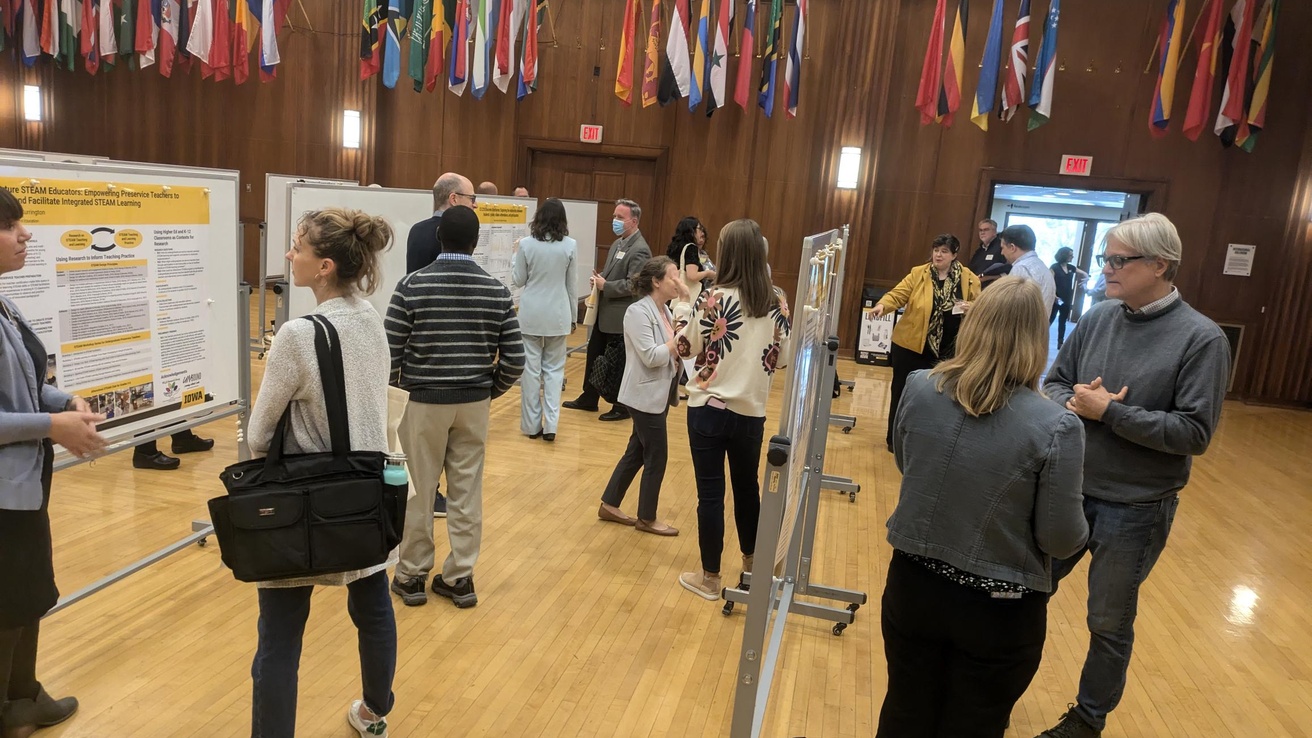
2
What We Do
How the Center for Teaching supports academic success and leads strategic teaching initiatives across campus
Highlighted Programs and Initiatives
Course Design
Course Design Institute
The Course Design Institute is a five-day program for instructors looking to design or revise a course they teach. Through hands-on support, active learning, and collaboration with educational developers, campus partners, and colleagues from across disciplines, the institute offers a structured, student-centered approach to course design.
Since 2016, more than 150 instructors from 12 different colleges across campus have participated in the program. 100% of participants in the 2025 program reported finding the evidence-based approach of backward course design valuable.
“The Course Design Institute is the perfect workshop to develop course material and optimize existing material. The facilitators model instructional techniques, classroom activities, and are a wealth of knowledge when it comes to brainstorming solutions. I would recommend the Course Design Institute and have recommended it to any faculty member talking about developing a new course or significantly changing an existing course.”
- Colleen Bringman, Associate Professor of Instruction, Roy J. Carver Department of Biomedical Engineering
Supporting Experiential Learning
As part of the Pomerantz Career Center's strategic plan P3 initiative, Closing the Gap: Experiential Learning for all Undergraduates, the Center for Teaching provided pedagogical support to the 18 faculty members who were awarded with an experiential education course grant. Center for Teaching staff also worked one-on-one with various faculty members on their experiential course design.
Early Career Faculty Programs
Launched in 2015, the Early Career Faculty Academy has supported 231 new tenure-track assistant professors from 58 departments. The academy is a year-long program that improves student outcomes by focusing on the success of new tenure-track assistant professors. The center launched the tenth cohort in August 2024.
An assessment of the program conducted in partnership with the Office of Assessment found that the Early Career Faculty Academy helped participants:
- develop their networks on campus,
- implement effective teaching strategies, and
- adapt to new challenges.
“[The Academy] provided the foundation I needed to do what I need to do teaching-wise so I could be productive in other areas.”
Scholarly Teaching Program
Funded by the SPARC Strategic Initiatives Fund, the Scholarly Teaching Program provides enhanced professional development opportunities for teaching-focused faculty members. Participants enhance their teaching practices and materials while building a network of colleagues by exploring literature on evidence-based teaching practices and attending a national teaching and learning conference.
By the Numbers
- 2 Cohorts
- 19 Instructors
- 18 Departments
- 4 Colleges
- 5216 Total Student Enrollment (Fall 24/Spring 25) in participants' courses
- 1 peer-reviewed article by cohort faculty and Center for Teaching staff accepted for publication in Teaching & Learning Inquiry
"I came back [from the conference experience] thinking how I will use this [teaching strategy] in my own classes but also specific ideas about how my [department] colleagues can incorporate these practices in their teaching."
- Elizabeth Kleiman, director of undergraduate studies in the Department of Computer Science; Fall 2024 participant
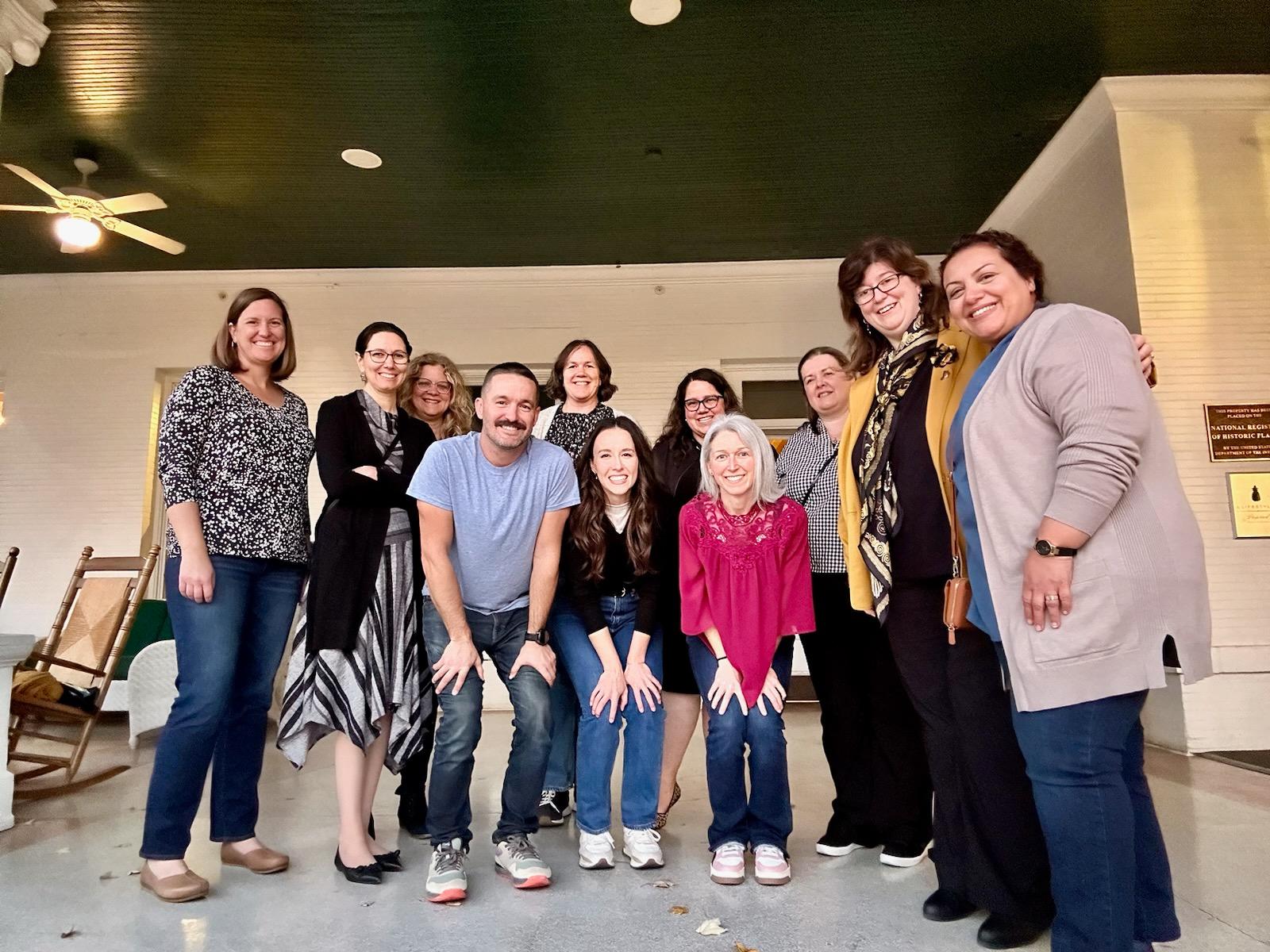
Highlighted Programs and Initiatives
Graduate Student Teaching Support
CIRTL (Center for the Integration of Research, Teaching, and Learning)
In collaboration with the Graduate College, CIRTL engages graduate students in effective teaching through familiarizing them with pedagogical research as well as investigating their own teaching. The highest level of achievement in CIRTL recognizes graduate teaching assistants who publish their own research on teaching practice. Former Graduate Teaching Fellow and new CIRTL Scholar Sarah Barringer (English) did just that this year with a publication in Faculty Focus on grading.
“When I first started teaching, I struggled to define my teaching values, set clear expectations for my students, or structure my syllabus. Guided by the CIRTL program, I spent the next four years researching pedagogy and studying on my own and through Center for Teaching programs like the Graduate Teaching Fellows until, in my fifth year, my teaching finally clicked.”
- Sarah Barringer, PhD Graduate Candidate in the Department of English
New Teaching Assistant Orientation
New TA Orientation introduces first-time graduate student instructors to evidence-based teaching methods and prepares them for the first days of class. In 2024, 335 graduate students attended with high self-reported gains in confidence.
Participants also shared strategies they were excited to try during the semester:
- “Using open-ended or follow-up questions if students are struggling to answer questions.”
- “Asking students what they hope to gain from the course and what they think will help them best meet those goals."
TA Mentors
In collaboration with the College of Liberal Arts and Sciences, the TA Mentor Program embeds trained graduate students as peer teaching mentors in large courses or departments to provide support to fellow TAs, leading to an expansion of faculty capacity, a more well-prepared and integrated teaching team, and a better undergraduate experience.
In Spring 2025 alone, TA mentors supported:
- 20 teaching assistants
- 3283 total student enrollment
Feedback from faculty supervisors
- “The TA mentor was fundamental to the success of the course for new TAs— we couldn’t have done it without her. I taught it before without a mentor and the new TAs and international students really had a tough time.”
Feedback from peer TAs
- “The TA mentor came to watch me and gave me feedback. It was nice just having someone say, “Yes, you’re doing a good job.” She’s very easy to approach...It helped my confidence a lot. Having someone who knows what teaching should look like watch me helped. The TA mentor also had us do observations of other TAs, and I found that to be really helpful. I observed another new TA, and seeing the way she taught showed me things I hadn’t thought of. It’s something I will take with me for teaching next semester.”
Scholarship of Teaching and Learning (SoTL)
Instructors engaged in the Scholarship of Teaching and Learning (SoTL) leverage their research expertise to enhance students’ learning experiences and refine their own teaching strategies. Decades of research have demonstrated how SoTL transforms teaching and learning and improves students’ learning (Hutchings, Huber, & Ciccone, 2011). Funded by the SPARC Strategic Initiatives Fund, the Scholarship of Teaching & Learning (SoTL) Program includes support for campuswide events and the launch of a SoTL Scholars Program for faculty members.
- 9 campus-wide SoTL events
- 3 internationally recognized SoTL guest experts
- 4 faculty supported in developing presentations for national/international peer-reviewed conferences 2024-25
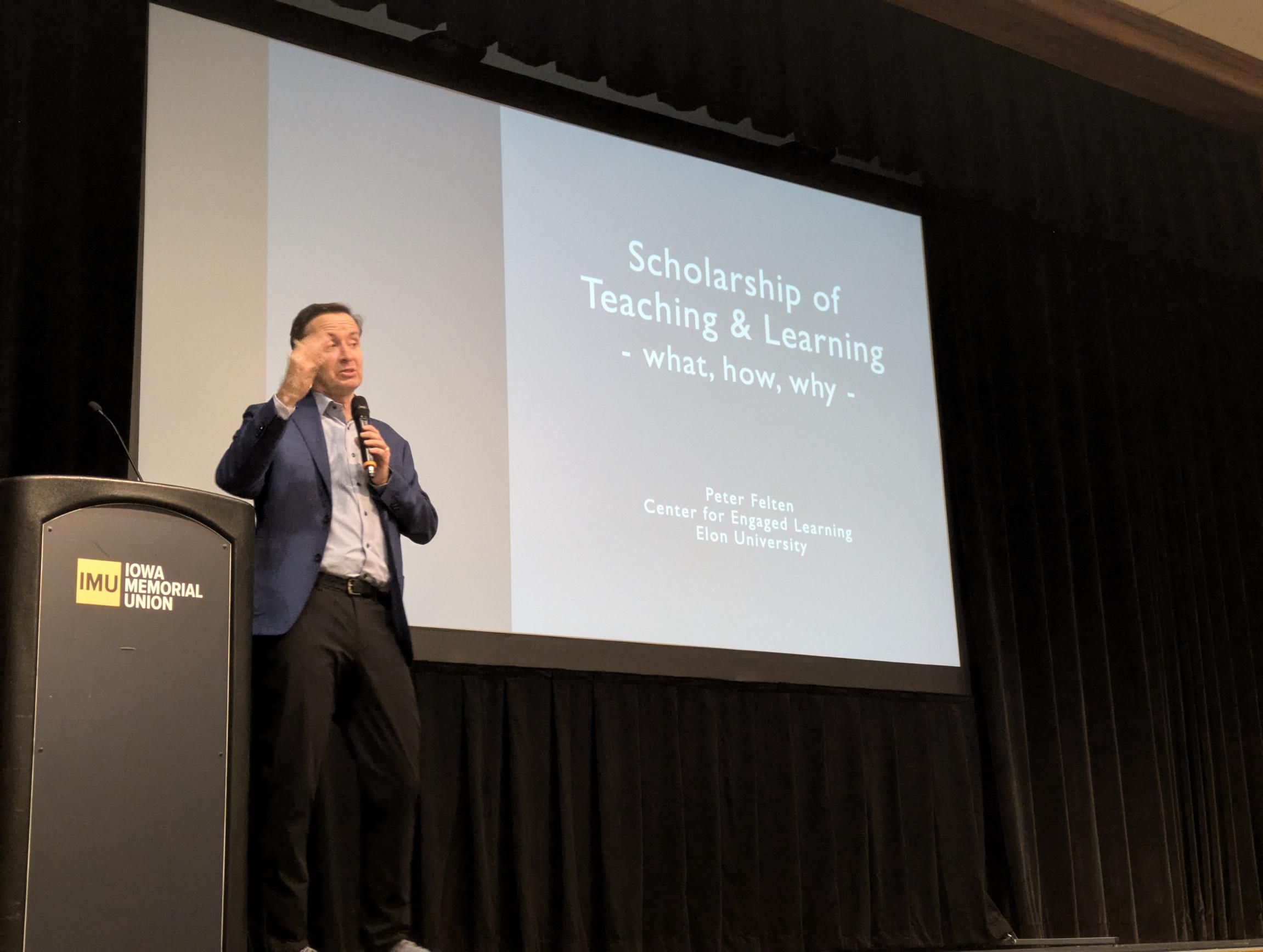
First SoTL Scholars Cohort
- 14 instructors at multiple ranks and tracks
- 12 departments
- 6 colleges
- 2882 total student enrollment (Fall 24/Spring 25) in participants’ courses
Students as Partners
Our nationally recognized Student as Partners program brings student voices and perspectives into large lecture courses at the University of Iowa. Undergraduate student partners provide feedback to instructors and work collaboratively to create welcoming and engaging learning environments. Additional funding from the SCIENCE Collaborative will extend the pilot for the 2025-26 academic year.
By the numbers
- 10 student partners
- 8 courses
- 3517 total student enrollment in courses participating in the program
- 3 scholarly presentations at conferences and national meetings by Iowa student partners
"For our first semester, first-year course in the College of Engineering, our student partner has provided an invaluable perspective on how we can best connect with and engage the students. In this early course, it is important to establish effective habits for active learning and participation that will serve the students through-out their time at Iowa. Our student partner has given us great ideas on how to best achieve this goal."
- Alec Scranton, Professor, Chemical and Biochemical Engineering
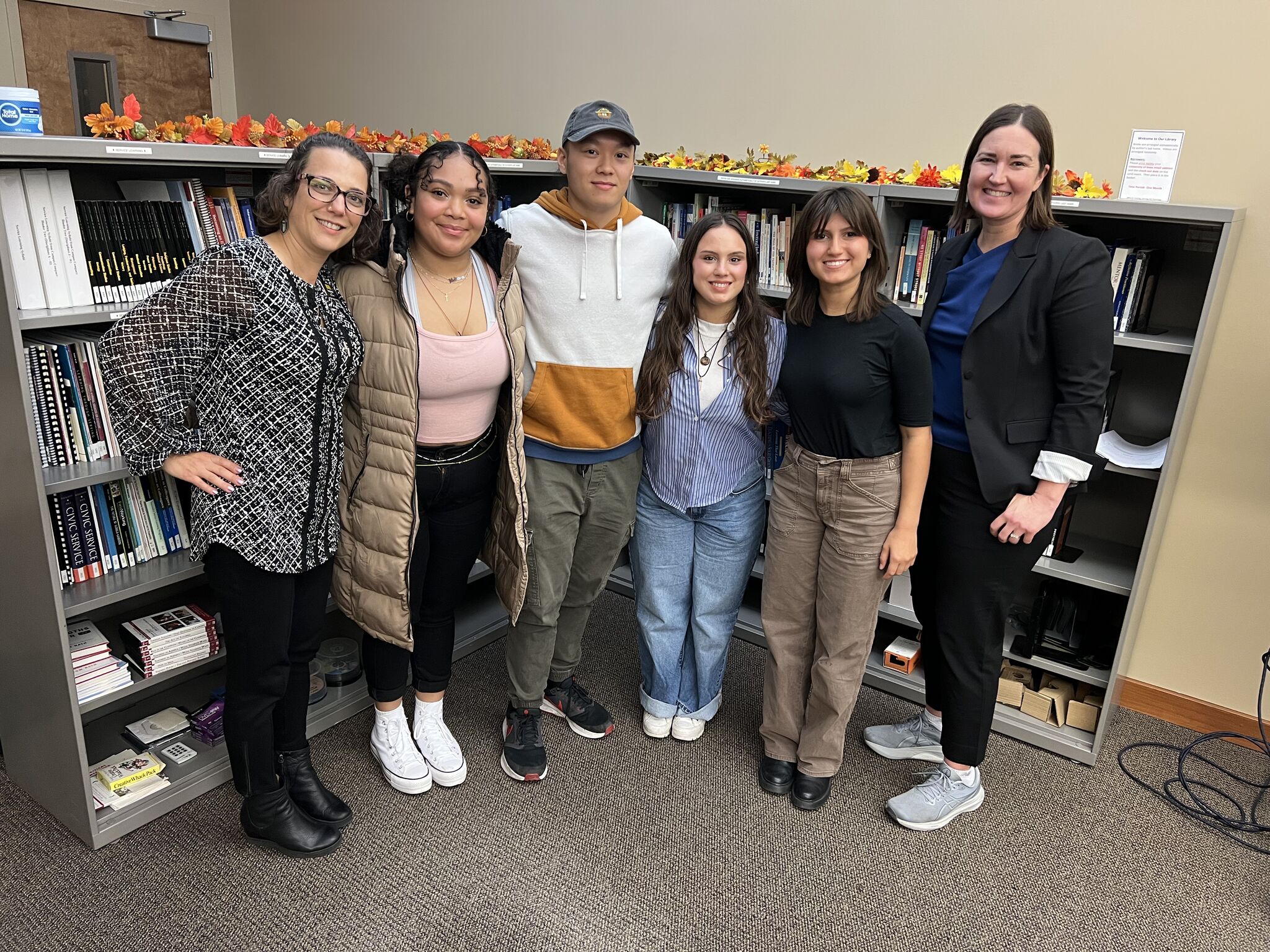
“Coming into college as a first-gen student, I had to navigate college on my own and figure out what worked for me. Through this partnership, I’ve gained a deeper understanding of both students and professors, and how even small adjustments can create more effective learning environments.”
- Lorena Perales, Class of 2026
Additional highlights from 2024-25
Creating resources to help faculty represent their work through the Teaching Assessment Framework
Although not directly involved in teaching evaluation, Center for Teaching staff created guides (including one that has been adopted by another institution) to support faculty in documenting their teaching. They also worked collaboratively with Provost Faculty Fellows on additional web resources and partnered with collegiate leaders and the Office of the Provost to offer sessions on peer observation and writing a teaching narrative.
DEO Action Group
In support of the excellence in teaching and learning strategic plan goal, the ETL DEO Action Group was convened in fall 2025 as a collaborative project between the Center for Teaching, Academic Support and Retention, and the Office of Assessment. Each year, DEOs from across campus meet to share knowledge and ideas, and work toward a strategic initiative. Past initiatives have included the implementation of the teaching assessment framework and DEO data literacy and dashboard needs.
Mentoring@Iowa Conference
Associate Director Katherine Beydler served on the workgroup convened by Vice President for Student Life Sarah Hansen to plan and execute a campus mini-conference on mentoring in fall 2024. Katherine planned and facilitated three sessions at the conference, including a book discussion, a faculty panel on effective mentoring strategies for undergraduates featuring Deb Trusty (Classics), Brian Lai (Political Science), and Lori Adams (Biology), and a conference wrap-up with workgroup colleague Mirra Anson.
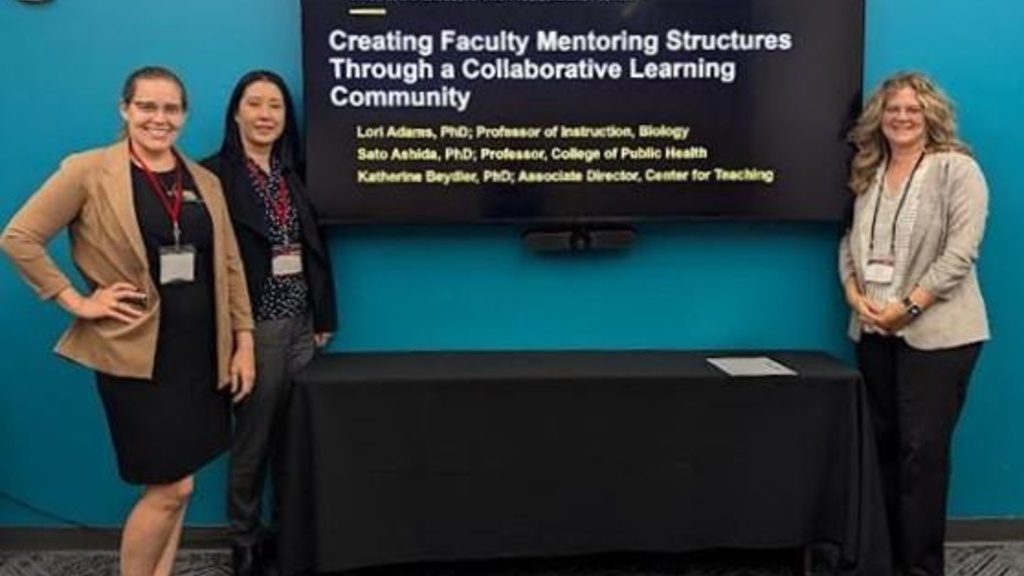
Peer Mentoring for Instructional Track Faculty
In spring 2024, the Center for Teaching collaborated with the associate provost for faculty to create a peer mentoring community for Instructional-Track Faculty. In biweekly meetings, the ITF community discussed topics such as promotion, well-being, and teaching strategies. Associate Director Katherine Beydler and Provost Faculty Fellows Sato Ashida and Lori Adams presented aspects of this work at the University of New Mexico Mentoring Conference.
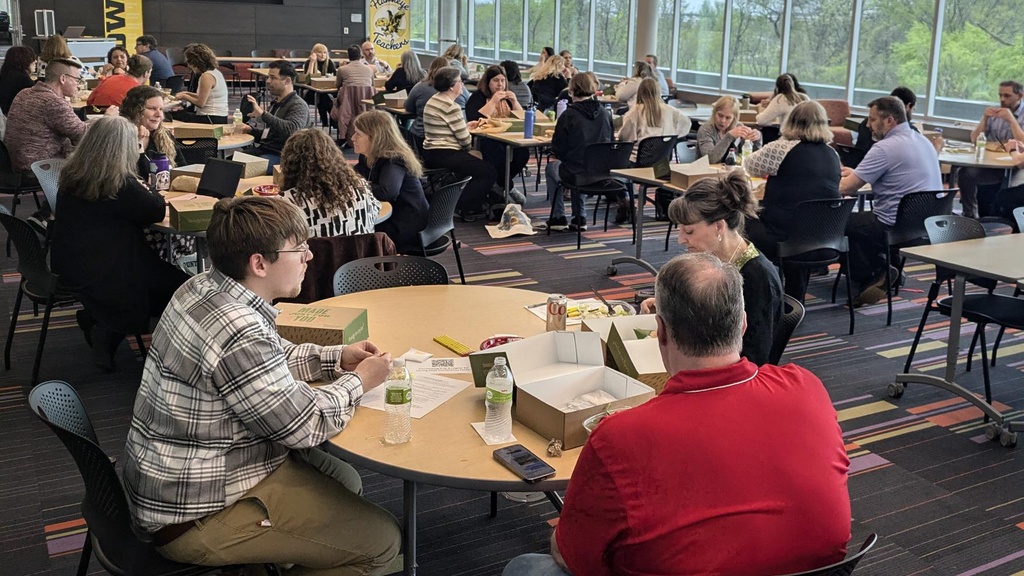
Co-convened Connecting K-12 and Higher Education events
The Center for Teaching partnered with the College of Education to host the second annual gathering of local stakeholders from K-12 education, the University of Iowa, and other educators from the state of Iowa to share knowledge related to student learning, effective teaching, and innovative educational practices.
